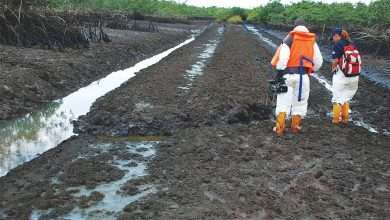Oil Theft: Nigeria Lost $3.5 Billion In 2021 – Report
Oil theft, especially in a developing country like Nigeria is a major factor in the country’s declining economic growth.
Experts revealed that in 2021 alone, Nigeria’s oil revenue loss was $3.5 billion, amounting to about 10 percent of the country’s foreign reserves. The year ended with a report that Nigeria, the largest oil and gas producer in Africa, experienced a deficit of almost 200 million barrels of crude in the first 11 months of the year, mainly due to oil theft.
In November 2015, thieves stole $250 million worth of crude from just one pipeline, around half a billion liters. With this incessant oil theft crime, it is almost impossible for to meet its OPEC quota of 1.68 million bpd of crude for January 2022.
A report by OilPrice revealed that cartels in the Niger Delta region generally steal crude by ‘hot tapping’ – attaching a secondary pipeline to a mainline, or ‘cold tapping’ – blowing up a pipeline and replacing it with their own. They then export this oil illegally to countries such as Ghana, Cameroon, Cote d’Ivoire, and South Africa while some even reach the international market, with exporters bribing officials that control the transportation of the product to turn a blind eye.




